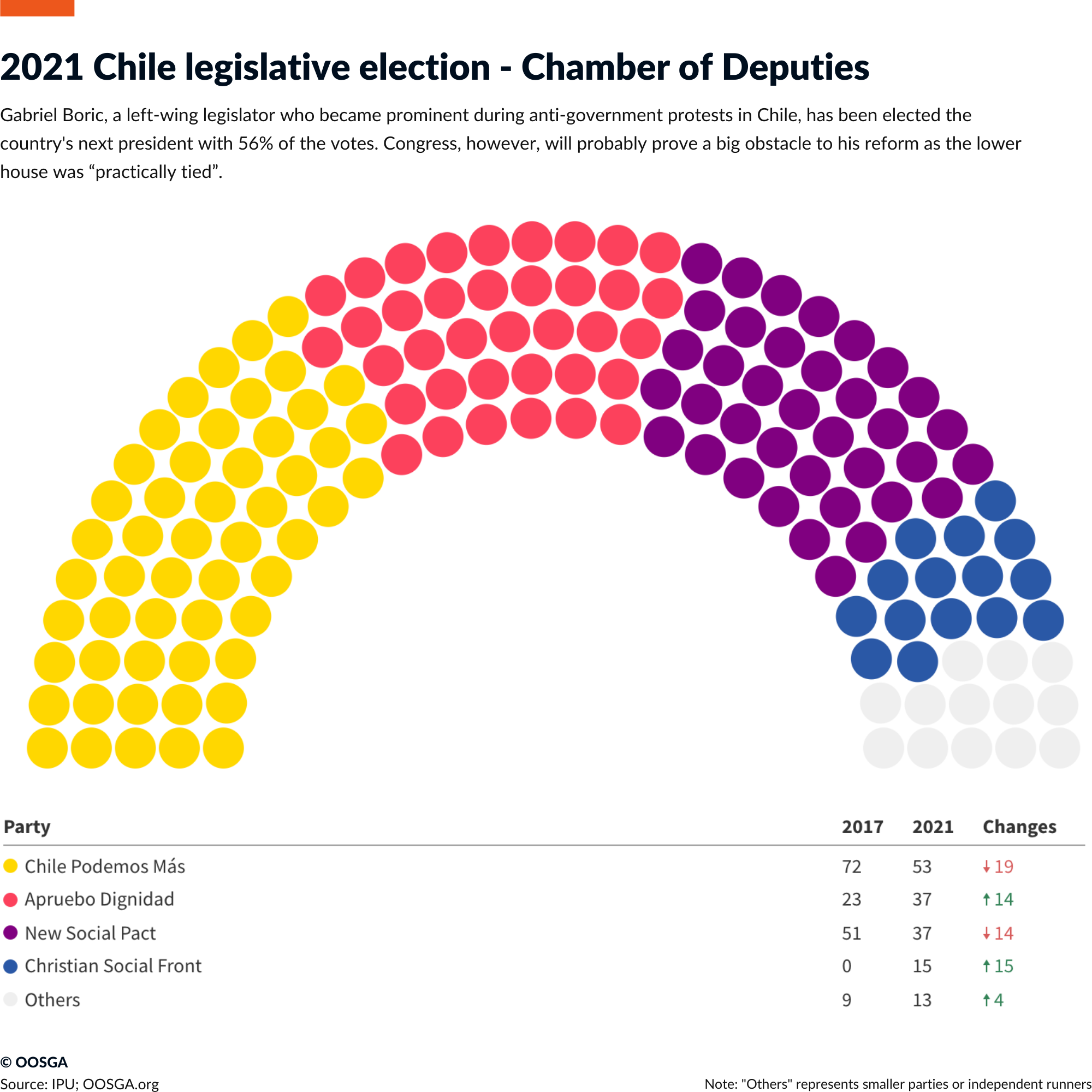Connect With Authors
*Your message will be sent straight to the team/individual responsible for the article.
Chile’s political history saw 20 years of center-left rule, followed by a center-right coalition’s win in the 2010 presidential election. The center-right and center-left alternated in power until the 2021 election, which saw Gabriel Boric of the left-wing Apruebo Dignidad coalition win. He took office in March 2022. Chile has a presidential system with a bicameral legislature and 15 regions, 54 provinces, and 346 municipalities.
Chilean economic policy has prioritized free trade, a liberal investment regime, and market competition with minimal red tape and restrictions to entry. The country’s fiscal and monetary policymaking has been prudent, supported by strong institutions such as the central bank, which directs monetary policy based on an inflation-targeting regime. The current administration under Boric intends to increase the state’s role in the economy by expanding public provision of social services, creating state-owned firms, renegotiating free-trade agreements, and increasing environmental, labor, and social regulations.
Chile’s business environment is likely to be weakened by tax and pension reforms and the constitutional reform process in 2023, which will shape the economic policy landscape over the coming decade. It is unlikely to hurt the business environment of Chile though, especially when it is a global trend. However, policy uncertainty is expected to rise in 2023 until the document is finalized. The government’s reform agenda in 2023 focuses on tax reform, which aims to generate more funds for social spending and make the tax code more progressive. However, negotiations with business organizations resulted in 27 amendments to the bill, with the tax reform likely to be diluted further after negotiations with an evenly divided Congress.
The proposed pension reform is another flagship item that the government has submitted to Congress. The reform aims to replace private pension administrators with a new public agency, which would compete with a state-run alternative. The reform’s statist elements are expected to be diluted or abandoned altogether due to opposition from right-wing parties and the public regarding the redistributive elements of the contributory pension system. However, the proposal to expand the non-contributory basic pension is popular and likely to pass. These reforms will weaken Chile’s business environment, including higher taxes and stricter environmental, labor, and social regulations, which will increase the cost of doing business.
-27.1 Billion
-9 %
1.4 %
38 %
During the 2021 general election, Gabriel Boric, a left-wing candidate, has won the final round of Chile’s presidential election with 56% of the vote, while José Antonio Kast, the ultra-conservative opponent, received 44%. Boric is the first leader to come from outside the centrist political mainstream that has largely ruled Chile since its return to democracy in 1990. He has pledged to enact higher taxes, greater public spending, and other reforms intended to empower women, indigenous groups, and minorities. However, Congress is expected to pose a significant obstacle to his reforms as the lower house has 21 different parties and many parliamentarians who “don’t obey instructions from anyone”.
Boric faces several challenges, including the redrafting of a constitution to replace the divisive text adopted during General Augusto Pinochet’s regime. Additionally, Boric’s opponents are concerned that he may try to build an authoritarian socialist state in Latin America similar to that of Venezuela or Cuba. Nevertheless, the election shows how much Chile’s politics and society have changed over the past decade, with power shifting from traditional elites to a younger generation.

-
43
-
40
2.28 $
7.65 $
1010 $
1.4758 %